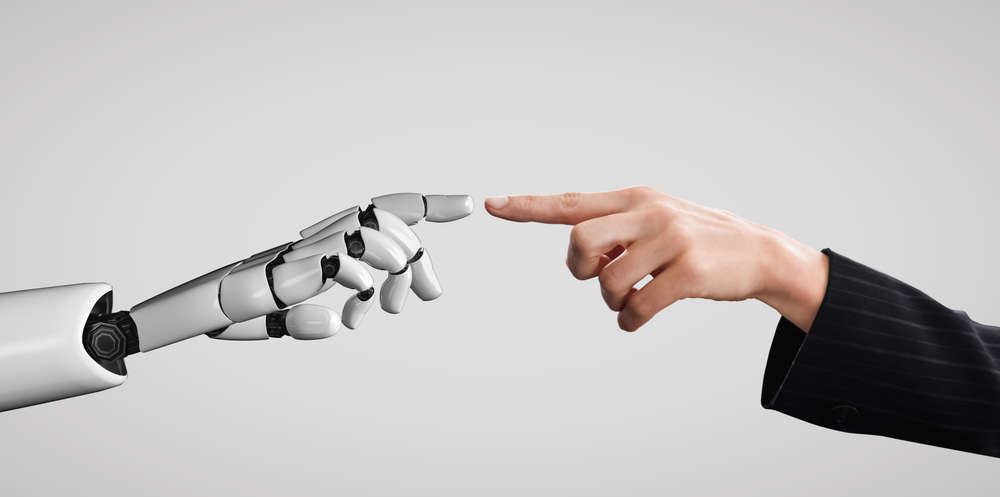
In the 21st century, artificial intelligence (AI) is quickly becoming a powerful force in our world. From healthcare to transportation, AI has the potential to revolutionize how we live our lives and even how we interact with each other. But what is AI, and how can it change the world? In this article, we’ll explore how AI is impacting our lives now and how it could shape the future of humanity.
AI technology has come a long way in recent years. By leveraging machine learning algorithms, computers can now understand complex scenarios, recognize patterns, and even respond to human input. With these capabilities, AI can be used to automate everyday processes like scheduling appointments or ordering groceries. It can also be used for more advanced tasks like analyzing medical data or predicting market trends.
Ultimately, AI will have an immense impact on society as a whole. Companies are already using AI to build smarter products and services that make life easier for their customers. Governments are using AI to create better public policies that benefit citizens all over the world. And researchers are exploring new ways for machines to interact with humans in areas like healthcare and education. In this article, we’ll take a closer look at how AI can improve our world — from economic growth to social progress — and why now is the time for us all to embrace its potential.
Definition Of Artificial Intelligence
Artificial Intelligence (AI) is the science of making machines that can think and act like humans. It involves programming computers to do specific tasks, such as recognizing objects or solving complex problems. AI has been around since the 1950s but has only become more popular in recent years due to advancements in technology.
One of the most common uses for AI is voice recognition technology, which allows computers to understand spoken commands and respond accordingly. AI can also be used to help diagnose medical conditions, analyze large data sets, and operate robots or other machines with precision.
AI has the potential to revolutionize many aspects of our lives, from transportation to healthcare. It can enable companies and governments to make more informed decisions about policies and improve efficiency in their operations. As AI continues to evolve, its applications will likely become even more far-reaching and life-changing.
Applications Of Ai In Everyday Life
AI is already changing the world in many ways. It can be found in almost every aspect of our lives, from our phones to our cars and even our homes. AI is also being used in healthcare, finance, education, and manufacturing as well.
In healthcare, AI can be used to diagnose diseases more accurately and quickly than ever before. It can also be used to help doctors make better decisions about treatments for their patients. In finance, AI is being used to automate financial transactions, analyze market trends and create investment strategies.
In education, AI can help teachers create more personalized learning experiences for their students by providing personalized feedback and resources that are tailored to each student’s needs. AI can also be used to provide students with real-time feedback on their performance while they learn. Finally, in manufacturing, AI is being used to increase the efficiency of production processes by automating them or monitoring them in real time.
AI is transforming the way we live our lives and allowing us to do things faster, smarter and more efficiently than ever before. From healthcare to education and beyond, it has revolutionized how we interact with the world around us and has opened up countless possibilities for improving everyday life.
Benefits Of Ai
AI has the potential to revolutionize many aspects of our lives. It can help create a better future for us by making processes more efficient and cost effective, while at the same time improving safety and security. AI also has the capacity to improve healthcare and education, helping people access better care and develop their knowledge.
In terms of healthcare, AI can be used to diagnose diseases quicker and more accurately than humans ever could. This means that patients get treatment faster which leads to fewer deaths or disabilities caused by medical conditions. AI can also help doctors determine the best course of action for each patient based on their medical history, making it easier for them to make informed decisions about treatment plans.
AI can also be used in education to help students learn more effectively in a shorter amount of time. AI-driven systems are able to identify learning patterns and tailor lessons accordingly, giving students an individualized learning experience that is tailored to their needs. This could lead to quicker understanding of concepts as well as improved grades in school.
AI is set to revolutionize many aspects of our lives, from healthcare and education, to transport, security and entertainment. Its potential is vast and its applications far-reaching; its benefits are clear for all of us who will reap its rewards for years to come.
Potential Risks And Challenges
AI has the potential to revolutionize many aspects of modern life, but it also carries some risks and challenges. The most obvious risk is that AI could be used for malicious purposes, such as creating autonomous weapons or hacking networks. This could lead to significant damage and loss of lives. Additionally, there is a risk that AI algorithms could be biased against certain groups or individuals. This could lead to discrimination or unfair outcomes in areas like job recruitment or educational opportunities.
Finally, there is the challenge of regulation. Companies developing AI technology need to be held accountable for any negative consequences their systems may have on society. Governments will need to create laws and regulations that ensure AI technologies are used appropriately and ethically. It is important that these regulations are enforced so that AI technology can reach its full potential without causing unnecessary harm.
Implications For The Future
Moving on from the potential risks and challenges of AI, it’s important to consider the implications for the future. AI is set to revolutionize many aspects of our lives, from healthcare to transportation and even education. With its ability to analyze vast amounts of data, AI has the potential to make decisions faster than humans ever could – leading to more efficient processes and better decision-making. It also has applications in areas like predictive analytics and cybersecurity, where it can detect patterns and threats before they occur.
The implications for the future are far-reaching. For one, AI could lead to an increase in jobs requiring technical expertise and an overall improvement in productivity across industries. Additionally, it could lead to greater automation in certain sectors, such as manufacturing or agriculture. This could free up time for people to focus on more creative tasks or pursue their own interests rather than spend all their days working in a factory or field.
Finally, AI promises a world with fewer mistakes and fewer accidents due to its ability to detect anomalies quickly. This could lead to a safer environment for everyone – both at home and at work – making it easier for us all to live without fear of danger from machines or human error. Ultimately, this technology holds immense potential for improving not just our current lives but also generations yet unborn.
Conclusion
In conclusion, AI can potentially revolutionize how our world works. Its applications are already being used in everyday life, from automated customer service to self-driving cars, and its use will only continue to expand in the future. We must remain aware of the risks and challenges of this technology to maximize its benefits and minimize the potential for harm. With careful implementation, AI can be a powerful tool for improving our lives and transforming our world.
AI technology is advancing rapidly, so it’s important that we stay informed about its implications as it evolves. We should recognize its potential and limitations to ensure that it is used responsibly and ethically. We need to prepare ourselves for a future where AI plays an increasingly prominent role if we want to make sure that it is used for good rather than ill.
Ultimately, the implications of Artificial Intelligence are far-reaching and complex – but with the right knowledge, attitudes, and strategies in place, AI can have a transformative impact on society as a whole. By understanding how it works and staying on top of its developments, we can harness this technology’s power while minimizing its risks – allowing us to shape a brighter future together.







